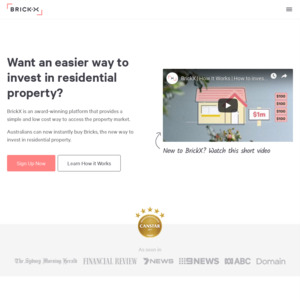Just stumbled across this website which allows you have fractional ownership of Australian real estate. From the looks of it, it feels simple and straightforward to use. Just wondering if anyone has had dealings with them?
p.s. In the interest of full disclosure. I have no affiliation in any shape or form to this website.

sounds as legit as buying a square foot of Scottish property, just without the title.